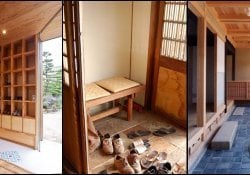Japanese is full of words with the same pronunciation, and they are known as Homophones (同音異義語 - Dōon igi-go), this is one of the great difficulties in learning Japanese. Fortunately, most of the words that have the same pronunciation have similar meanings.
All this due to words borrowed from Chinese and other languages, and as Japanese is only composed of 109 syllables, without accentuation or change in pronunciation, it results in thousands of identical words.
In this article, we will see some of these words with the same pronunciation. Unfortunately, there are many, and in order not to make the article too long, let's look at just a few.
Au - あう - 合う vs 会う vs 遭う To meet/to come together vs To meet/to see vs To encounter
Both words above are pronounced "Au" but have their differences.
- 会う - means "to meet someone in person or be present at an event;
- 合う - means "to do something together", or "to find or come across something";
- 遭う - means "meet with misfortune, unexpected."
These 3 words, in addition to having the same pronunciation, also have a very similar meaning. The sentences below will help you understand the difference between these 3 words.
| 渋谷でぱったりと友達に会った | I met a friend in Shibuya by chance. | I met a friend in Shibuya |
| 集まってそれを話し合いましょう。 | Wakai futari wa sugu ni aishiau yō ni natta. | We will meet together to discuss the matter. |
| 帰りに、にわか雨に遭いました | I met you by chance on the way back | On the way home, we ran into the rain. |
Aka - あか - 赤 vs 紅 vs 朱 vs 緋
- 赤 - Refers to all shades of the color red;
- 紅 - Used for deep red tones like crimson;
- 朱 - is used for orange reds such as redness;
- 緋 – Used for bright reds, such as scarlet, cardinal, or fiery red;
Ashi - あし - Foot vs Leg vs Reed
- 足 - refers to the feet
- 脚 - refers to the legs, from the waist down;
- 葦 - phragmites, cane
- アシ - short for assistant アシスタント
- 悪し - bad
The article is still halfway through, but we recommend also reading:
Asakiru - おさまる - 収まる vs 納まる vs 治まる vs 修まる Settle vs Accommodate vs Subside vs Improve
- 収まる - means "to put in", "to unite", or "to obtain a good result."
- 納まる - means "resolving something in its proper place", "putting an end to something", or "finishing."
- 治まる - means "to be at peace, "to repress" or "to diminish";
- 修まる - means "to be of good character or perform a splendid action" or "to acquire knowledge or skill."
Kawaru - かわる - 変わる vs 換わる vs 替わる vs 代わる Change (intransitive) vs Replace vs Be Exchanged vs Substitute
- 変わる - means "change state or condition."
- 換わ - means "exchange or exchange."
- 替わる - means "change to something new."
- 代わる means "replace Someone, a role" or "act in Someone's place."
Shi
There are thousands of kanji, or words that are pronounced “shi”, but in most cases, this pronunciation must be present with another kanji, and form more specific words. But it doesn't change the fact that "shi" and several other pronunciations are present in several different kanji.
| シ | from the English "ela" |
| 史 | history |
| 師 | professor |
| 市 | market or city |
| 矢 | arrow |
| 士 | warrior |
| 使 | to use |
| 始 | to start |
| 獅子 | shishi "lion" |
These were some words that have the same pronunciation, I hope it will be enough to instruct a little on this subject. You can find more on the tofugo website.






